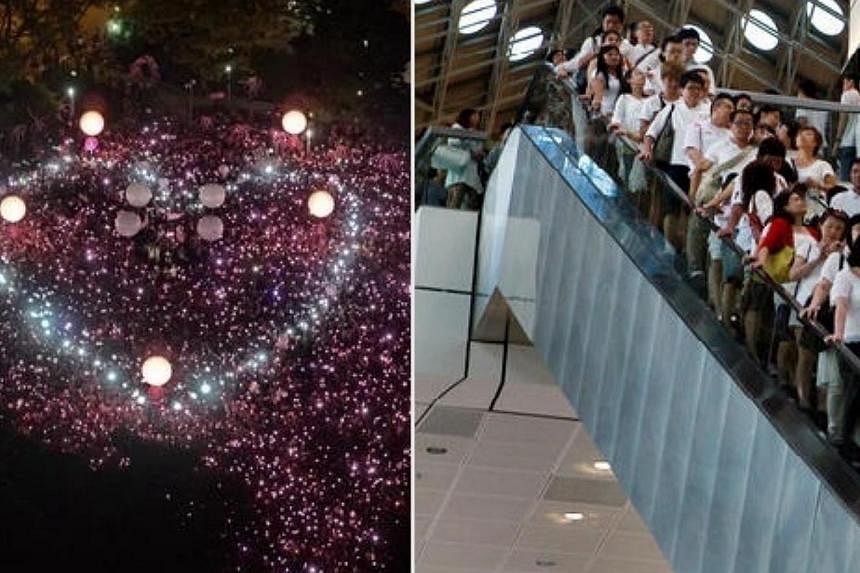The recent jousting over homosexuality between religious figures and social activists has been taken as evidence of the onset of a "culture war" akin to that seen in the United States. That appears to be somewhat of an overstatement of what is essentially a brush of competing campaigns aimed at a largely moderate middle ground. The deep unease in some religious quarters over the symbolism of last Saturday's Pink Dot event appears not to be shared by most Singaporeans. There is, as yet, no widespread cultural polarisation here as in the US, where policies relating to gun control, health-care reform, abortion and euthanasia are held hostage to ideology.
This is not to say the skirmishes here over homosexuality can be taken lightly. The exertions witnessed recently by different groups - the Pink Dot crowd or the "Wear white" lobby - can threaten social cohesion. Unless handled with care, over-zealous pushing of each side's views will sharpen cleavages and open fresh fault lines that all should be mindful of, given the nature of Singapore society - rated as the most religiously diverse in the world, among the 232 countries studied by the Pew Research Centre.
If any good came out of the conflicting campaigns, it would be that it highlighted the need to manage the disparate pulls in our society. Social harmony that exists, as indicated by an Institute of Policy Studies survey, should never be taken for granted as religiosity and advocacy could assume greater prominence in the future.
The nub of the issue is that this is a struggle that no protagonist can hope to win - since none is likely to abandon deeply-held beliefs, ideas and lifestyle choices, and especially when the silent, conservative majority is more focused on stark realities like the cost of living, health care, transport, housing and jobs. Most Singaporeans, including those who profess no religion, do not approve of gay sex, but are not prepared to impose their views on other citizens. There appears to be a general willingness to "live and let live", allowing everyone the freedom to shape their lives, so long as this does not upset the status quo, for example, via insistent attempts to make fringe values and choices part of the mainstream.
Pragmatic Singaporeans will accept that no society is static and more diversity might well be a fact of life here. The more complex it becomes, the harder must society try to assimilate those who are culturally different and to strike a social balance. This process is better served by acknowledging and living up to the nation's tested approach of tolerance and accommodation, rather than by parading colours to assert ideologies of different shades.

